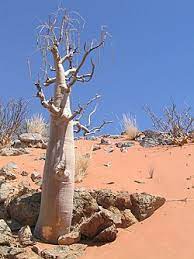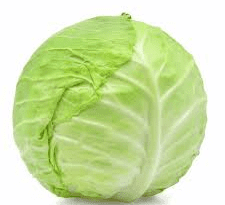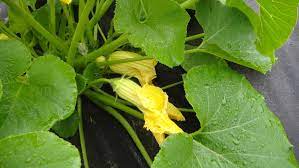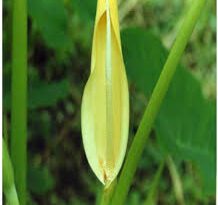Moringa Wood: Economic Importance, Uses, and by-Products
Moringa wood refers to the wood obtained from the Moringa tree, specifically the Moringa oleifera tree. Moringa oleifera is a fast-growing, drought-resistant tree native to the Indian subcontinent but is now found in many tropical and subtropical regions around the world. It is commonly known as the drumstick tree or horseradish tree and is primarily cultivated for its nutritious leaves, seeds, and pods.
Moringa wood is a valuable resource because it is lightweight, durable, and easy to work with. It can be used for various purposes. In many parts of the world, Moringa wood is used as a source of fuel, as it burns easily and provides a reliable source of energy for cooking and heating. The wood is suitable for construction purposes, such as making small furniture, roof trusses, and even as a building material for houses and shelters in some regions.
Moringa wood is also used for crafting various items, including toys, utensils, and decorative items. The wood is sometimes used to create simple agricultural tools like plows and handles for farming implements. The wood is sometimes used for making fence posts and other agricultural infrastructure.
It is important to note that Moringa trees are cultivated primarily for their leaves, seeds, and pods, which are incredibly nutritious and have numerous health benefits. However, when pruning or thinning Moringa trees, the wood can also be a useful byproduct. Moringa wood is relatively easy to work with, and it has a light color and a pleasant, mild scent. The wood’s uses may vary depending on local customs and traditions in the regions where the tree is cultivated.
The Economic Importance and Uses of Moringa Wood
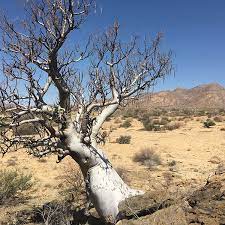
Moringa, also known as Moringa oleifera, is a versatile plant with various economic uses, including its wood.
Here are some of the economic importance and uses of Moringa wood:
1. Fuelwood: Moringa wood is commonly used as a source of fuelwood. The wood burns well and produces a hot, clean flame, making it valuable for cooking and heating in many regions where Moringa grows. This can help reduce the demand for other less sustainable sources of fuel.
2. Construction: Moringa wood can be used in construction for making furniture, doors, windows, and even building structures. It’s relatively lightweight, making it suitable for various construction applications.
3. Tool Handles: The wood is durable and can be used to make handles for various agricultural and gardening tools, which is essential in rural areas where such tools are widely used.
4. Art and Crafts: Moringa wood’s light color and workability make it suitable for carving and creating a wide range of artistic and craft items. These items can be sold for profit in local and global markets.
5. Agricultural Implements: Farmers in some regions use Moringa wood to make agricultural implements like plow handles and stakes. The wood’s strength and durability make it a good choice for these purposes.
6. Paper Production: Moringa wood can be used in the paper and pulp industry. The fibrous nature of the wood can be processed to make paper and other paper products.
7. Housing and Fencing: In rural areas, Moringa wood is used for making low-cost housing and fencing due to its ready availability and low cost.
8. Horticultural Uses: Moringa wood can be used for trellising plants in horticulture. Its strength and resistance to decay make it a good choice for supporting climbing plants like grapes, beans, and other vines.
9. Wooden Utensils: Moringa wood can be used to craft wooden utensils like ladles, spoons, and spatulas, which are commonly used in household kitchens.
10. Charcoal Production: Moringa wood can be converted into charcoal, which is used for cooking and heating. Charcoal production can be a valuable source of income for communities where Moringa is abundant.
11. Export Market: In some regions, Moringa wood products can be exported to international markets, generating income for local communities.
Read Also: Preventive Measures for Common Rabbit Diseases
12. Reforestation: The economic importance of Moringa wood is also linked to its role in reforestation efforts. Moringa trees are fast-growing and can be planted for reforestation, helping to combat deforestation and generate long-term economic and environmental benefits.
The Products and By-products That Can Be Derived From Moringa Wood
Moringa wood, derived from the Moringa tree (Moringa oleifera), has a variety of applications and can yield several products and by-products.
Here is a list of products and by-products that can be obtained from Moringa wood, along with brief explanations:
1. Timber: Moringa wood is a valuable source of timber, which can be used for construction, furniture, and various woodworking projects. It is a lightweight, moderately durable wood with a range of applications.
2. Firewood: Moringa wood is a good source of firewood due to its ease of burning and relatively high calorific value. It’s commonly used for cooking and heating in many regions.
3. Charcoal: Moringa wood can be converted into charcoal through the process of pyrolysis. Charcoal is used for cooking, grilling, and as a fuel source in areas where other energy sources are limited.
4. Wood-based products: Moringa wood can be used to make various wood-based products such as utensils, handicrafts, carvings, and decorative items.
5. Wood pulp: Moringa wood can be processed to extract wood pulp, which can be used in the production of paper and paper products.
6. Essential oils: The seeds of the Moringa tree, which contain oil, can be extracted to make Moringa oil. This oil is used in the cosmetic and skincare industries and is also known for its medicinal properties.
7. Animal feed: Moringa leaves, stems, and twigs can be used as a source of fodder for livestock. They are rich in nutrients and can supplement the diets of animals.
8. Fertilizer: The leaves and other parts of the Moringa tree can be used as a source of organic fertilizer. They are rich in nutrients like nitrogen, phosphorus, and potassium.
9. Soil conditioning: Moringa leaves and other organic matter from the tree can be used to improve soil quality and enhance its water retention and nutrient content.
10. Water purification: Moringa seeds contain natural coagulants that can be used to clarify and purify water by removing impurities and contaminants.
11. Medicinal extracts: Various parts of the Moringa tree, including the bark and roots, are used in traditional medicine for their potential health benefits. These extracts may have anti-inflammatory, antimicrobial, and other medicinal properties.
12. Bioenergy production: Moringa wood can be used as a source of biomass for bioenergy production, such as biogas and biofuels.
In conclusion, is important to note that the utilization of Moringa wood and its by-products may vary depending on local customs, needs, and environmental considerations. Additionally, sustainable harvesting and cultivation practices should be followed to ensure the long-term viability of Moringa trees and their resources.
Read Also: All You Need to Know About Cosmos Flower

